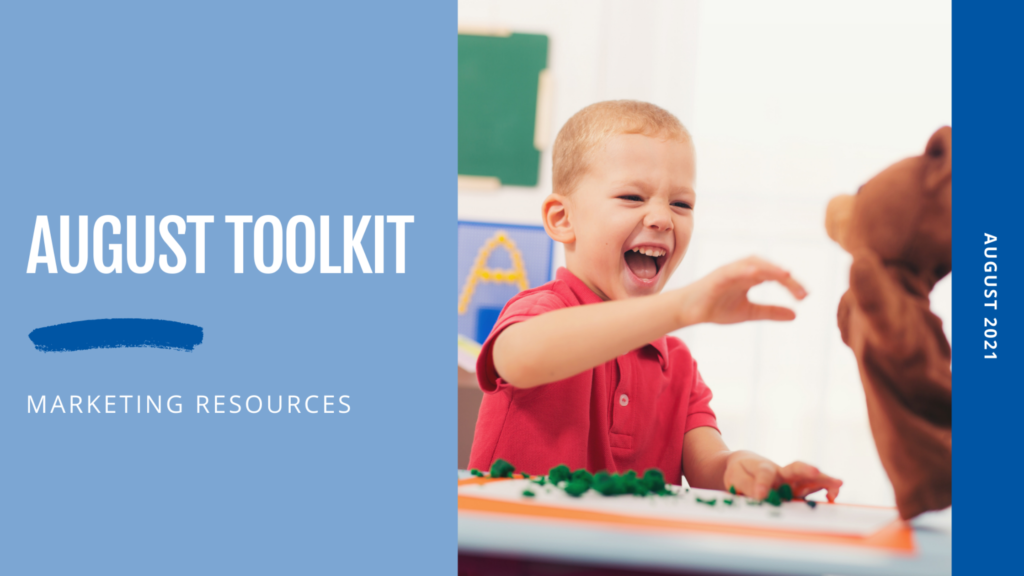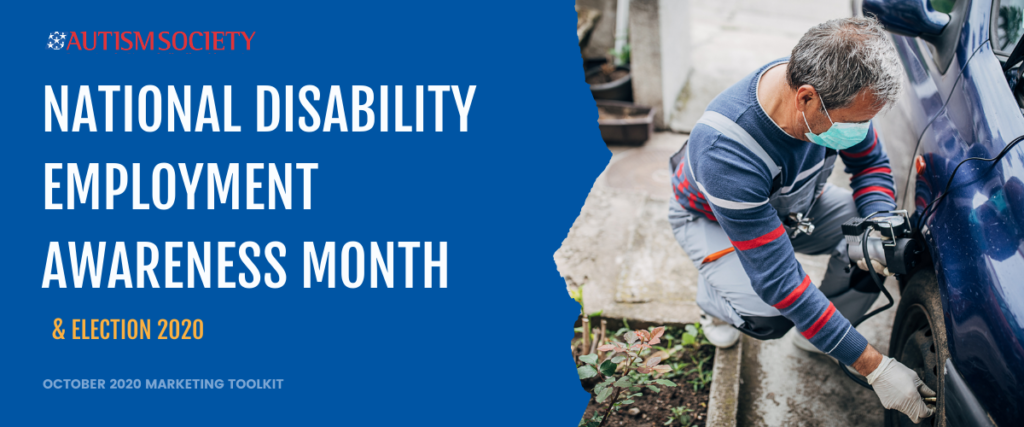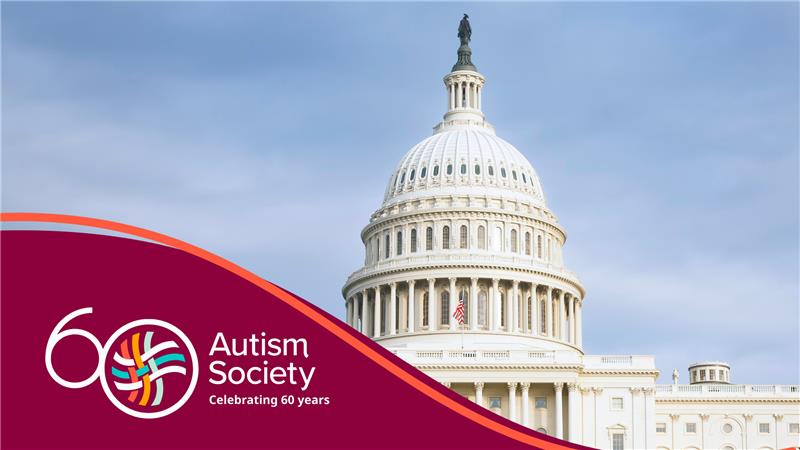
In this issue of Capitol Connection, find a toolkit on how to comment on the newly proposed HCBS Access Rule to increase the quality of services and supports. Information on a Supreme Court case victory and new legislation is also included. Please use the Autism Society’s Action Center to educate your Members of Congress to support legislation and funding for the Autism community in this critical final month. In addition, view our updated Public Policy section of the Autism Society website.
Supreme Court Medicaid Case Victory
On June 8th, the Supreme Court of the United States (SCOTUS) released a ruling regarding the Health and Hospital Association of Marion County v. Talevski. In this case, Gorgi Talevski was in a state-run nursing home in Indiana. His wife claimed that the medical facility provided inadequate care through chemical restraint and other practices. Ms. Talevski claimed that this is a violation of the Federal Nursing Home Reform Act (FNHRA), a 1987 law that established a “bill of rights” for residents of nursing homes receiving Medicaid funding. She sued the home and its parent organization under Section 1983 of the U.S. Code, which allows individuals to sue government entities that violate their legal rights. In a 7-2 decision, SCOTUS held that the Federal Nursing Home Reform Act is enforceable thru Section 1983. This reaffirms the legal safeguards for individuals under Medicaid.
Work Without Worry Act Introduction
The Work Without Worry Act, a bill supported by the Autism Society, was reintroduced by Senator Wyden (D-OR) and Senator Cassidy (R-LA) on June 23rd. This bill would allow individuals who receive the Social Security benefit called the Disabled Adult Child (DAC) benefit (sometimes called the Childhood Disability Benefit) to not worry about losing benefits when transitioning to work. To be qualified for the DAC benefit, an adult must have a disability that began before the age of 22 and qualify under their parent’s Social Security contributions and earnings. Under the current system, if an individual’s parents have not yet begun receiving Social Security benefits, and the adult with a disability begins working above a certain amount, they could lose their DAC Benefit. This bill would amend that to ensure the individual’s earnings would not affect their eligibility. See the press release from Senator Wyden’s office for more information.
Youth Mental Health Hearing
On June 8th, 2023, the Health, Education Labor and Pensions Committee (HELP Committee) held a hearing entitled “Why Are So Many American Youth in a Mental Health Crisis? Exploring Causes and Solutions”. Senators from both sides of the Committee expressed concerns about the negative effects of social media on our nation’s youth as well as the rising rates of mental health challenges. Panel witness, Surgeon General Vivek Murthy provided examples of actions being taken and how to involve young people in arriving at solutions for this crisis. How to provide accessible mental health resources in schools was another topic of discussion. Katy Neas, Deputy Assistant Secretary of the U.S Department of Education’s Office of Special Education and Rehabilitative Services said “Schools are a gateway to needed services that otherwise may be unavailable to young people.” Neas noted that the recently enacted Bipartisan Safer Communities Act provided $1 billion in grant funding to help schools establish safe, healthy, and supportive learning opportunities and environments and $1 billion in funding to increase the number of mental health professionals in schools.
DOL Hearings
Acting DOL Secretary Julie Su, the Biden administration’s labor secretary nominee appeared before the Senate Health, Education, Labor and Pensions committee on April 20th. In response to a question from Senator Hassan (D-NH), she spoke at length about her support for improving employment opportunities for people with disabilities. She specifically spoke about the need to support individuals with disabilities to achieve competitive integrated employment. It is unclear when or if the full Senate will take action to confirm her as DOL Secretary. Meanwhile, she will continue in her role as acting secretary. Last week (June 7th) Su appeared before the House Education and Workforce where members asked her about the Department of Labor’s priorities.
Resources
HCBS Access Rule Toolkit
The Autism Society and the National Association of Councils on Developmental Disabilities released a toolkit to guide advocates through commenting on the HCBS Access Rule. The toolkit summarizes the proposed rule and how it might impact home and community-based services. It then directs advocates to our Action Center where sample comments are offered. It is highly recommended that comments are edited in line with personal stories. Last week, a workshop was held where Vicki Gottlich, Senior Policy Advisor at the Administration for Community Living gave an overview of what the proposed rule would do, and then self-advocates described how this could help them receive more high-quality services that are geared toward them. Watch the recording here. The deadline to comment is July 3rd.
Medicaid Outreach Toolkit
As the Public Health Emergency Medicaid unwinding continues to take place over the next few months, it is important to share information on Medicaid and how to check qualifications, and how to enroll. KFF, or the Kaiser Family Foundation, is tracking unenrollment as the first 12 states start the process. The Medicaid Outreach Partnership is an initiative to increase Medicaid outreach efforts across the country and has provided this toolkit on how partners can share information on Medicaid enrollment with their constituents.
Education
The Departments of Justice Office on Civil Rights and Education Office on Civil Rights released a resource on Confronting Racial Discrimination in Student Discipline (May 2023, USDOE-OCR & USDOJ-Civil Rights Division). This resource summarizes investigations involving student discipline policies or practices that the Departments have conducted under the nondiscrimination laws and regulations they enforce. More information about effective strategies to address the impact of lost instructional time and allowable uses of ARP ESSER and BSCA funds is available in the Department of Education’s Frequently Asked Questions Elementary and Secondary School Emergency Relief Programs Governor’s Emergency Education Relief Programs document, and the Bipartisan Safer Communities Act Stronger Connections Grant Program Frequently Asked Questions.
Report on Subminimum Wages and Competitive Integrated Employment
The National Disability Rights Network released a report in collaboration with the Disability Employment TA Center with an update on subminimum wages and 14c programs in the United States. The report provides recommendations and strategies to effectively transform systems into competitive integrative employment. The report provides a background on subminimum wages, exploitation, and non-compliance. It also notes the States that have eliminated the program, and state and federal actions to transition to competitive integrated employment.
Share:





